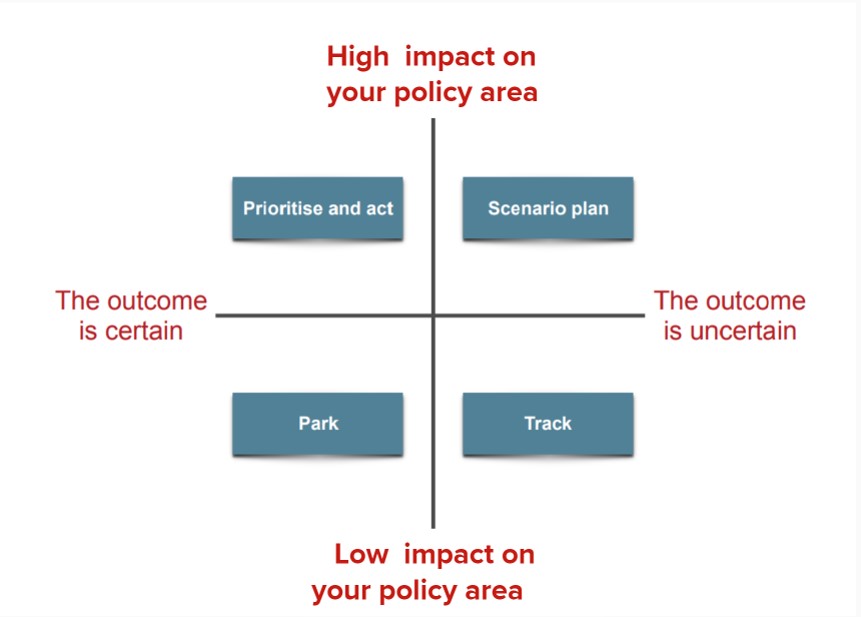The Well-being of Future Generations (Wales) Act 2015 is a world-first in legislating for sustainable development and codifying long-term thinking as a sustainable behaviour within Welsh law. The legal framework provides a lens for decision-makers to steer, frame and challenge the decisions being made for citizens in Wales today with the aim of helping ensure a positive legacy is left for future generations.
Following a year-long research project investigating the use of futures and foresight practices across the Welsh Government, the Sustainable Futures Division is pleased to publish Dr Laura De Vito’s report Foresight for sustainable development and well-being governance in Wales.
The report includes results from a series of pilot projects designed to improve futures and foresight capabilities in Welsh Government, detailed responses from officials working in several other national governments and a set of recommendations geared to further develop and embed futures and foresight practices in Wales. This work has been supported by officials in Natural Resources Wales, Public Health Wales, and the Future Generations Commissioner for Wales’ office.
For those not familiar with futures and foresight, the report provides a very useful overview of different practices, techniques, and opportunities for further learning.
As Dr De Vito outlines:
‘Foresight enhances well‑being and sustainable development governance by integrating long‑term perspectives and supporting policymakers in acknowledging and navigating uncertainty and understanding the long‑term consequences of decisions.’
‘The Well-being of Future Generations Act constitutes a transformative platform upon which the Welsh Government can build on. Under this legislative framework, Welsh Government has the opportunity to address current futures literacy gaps, unlock mechanisms to overcome barriers, and embed long‑term thinking in the Welsh public sector.’
The research project was funded by the Economic and Social Research Council and conducted in collaboration with the University of the West of England, where Dr De Vito is a Senior Research Fellow at the Air Quality Management Resource Centre.
The Well-being of Future Generations Act’s sustainable development principle puts long-term thinking at the heart of our work. The Act requires listed public bodies, including the Welsh Government, to consider the long-term impact of our decisions. Dr De Vito’s research demonstrates the importance of good alignment between foresight practices and sustainable decision-making. This research provides us unparalleled insight to help us move forward our futures and foresight work here in the Welsh Government. With the framework provided by the Act and the findings from this research, we are uniquely able to build on the report’s recommendations to ensure that ongoing work is geared to the long term.


